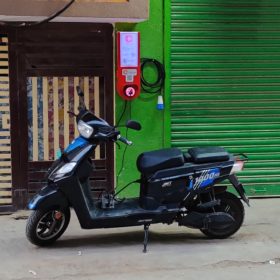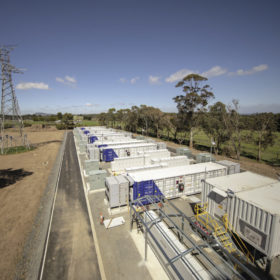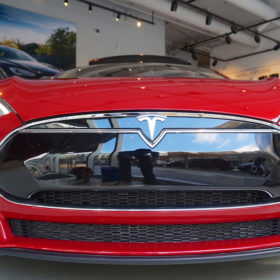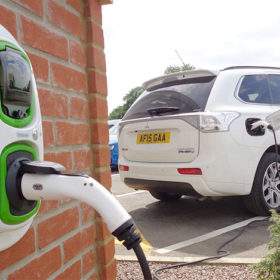Bridging the gap between battery and supercapacitor
By engineering the structure of a hard carbon electrode, scientists at the CIC energIGUNE research center have created an ‘ultrafast battery’ which has been shown to combine the energy density of a lithium device with the fast discharge times normally associated with supercapacitors.
Startup launches cheapest EV charger, plans to install 100,000 units in a year
Having bagged orders for 470 chargers in pilot stage itself, Bengaluru based electric scooter startup FAE Bikes plans to aggressively expand its IOT enabled EV charging network. The chargers—costing just Rs 10,000—can be set up anywhere including small shops and homes with standard power supply.
The long read: Go big, go with the flow
While lithium batteries have taken center stage for energy storage, vanadium redox flow batteries could gain considerable traction in 2020. In previous years, vanadium battery installations around the world have done little more than provide proof of concept and a test bed for manufacturers, argues David Gillam from Mastermines. He looks at what may have changed since then and why a surge in batteries utilizing vanadium may be closer than many believe, with China taking the lead.
Coronavirus could cost Chinese battery makers 26 GWh of output
WoodMac analysts say the amount of new battery manufacturing capacity added in the nation this year could fall by as much as 10% because of the outbreak. With Tesla’s Shanghai gigafactory affected by the extended new-year-holiday shutdown, the analyst warned of potential supply shortages for Australia and the U.S. and U.K.
Energy density advances and faster charging would unlock EV revolution
With electric vehicles making up only 3% of the global car market last year, analyst WoodMac says battery packs need to be cheaper and lighter and range anxiety must be addressed to change the habits of drivers.
India’s lithium-ion battery imports increase fourfold in two years
China, Hong Kong and Vietnam are the top three nations exporting batteries to India. Chinese imports were worth $773 million in the last fiscal year with Hong Kong shipping $267 million worth and Vietnam $114 million, according to the Ministry of Commerce.
IndianOil buys stake in Israel’s Phinergy for manufacturing of aluminium-air batteries
The joint venture will set up a factory in India to manufacture Al-Air batteries for electric vehicles and stationary applications and facilitate development of eco-system for Al-Air technology.
The long read: Is fair lithium from Chile possible?
Batteries, and the raw materials that make them, are a frequent target of public criticism. The high water consumption required for lithium extraction is speeding up the desertification process around the salt lakes of Latin America’s so-called “lithium triangle”, for example. The mining debate highlights general problems with the extraction of raw materials, including copper, crude oil, and lithium, but international companies can still influence extraction methods – and there are plenty of different approaches.
REIL invites EOI for installation of over 1000 EV charging stations
February 1 is the last date to submit applications for setting up the electric vehicle (EV) charging stations in 70 plus cities across the country. The selected company shall also provide operation and maintenance support.
EVs could become cheaper than combustion vehicles within three years: NITI Aayog CEO
A 50% fall in the price of Lithium-ion battery packs—to $76/KWh from $156/KWh today—will make the capital cost of electric vehicles lower than combustion vehicles. However, to realise the full benefits of EVs, it is important to charge them with clean power and not fossil power.















